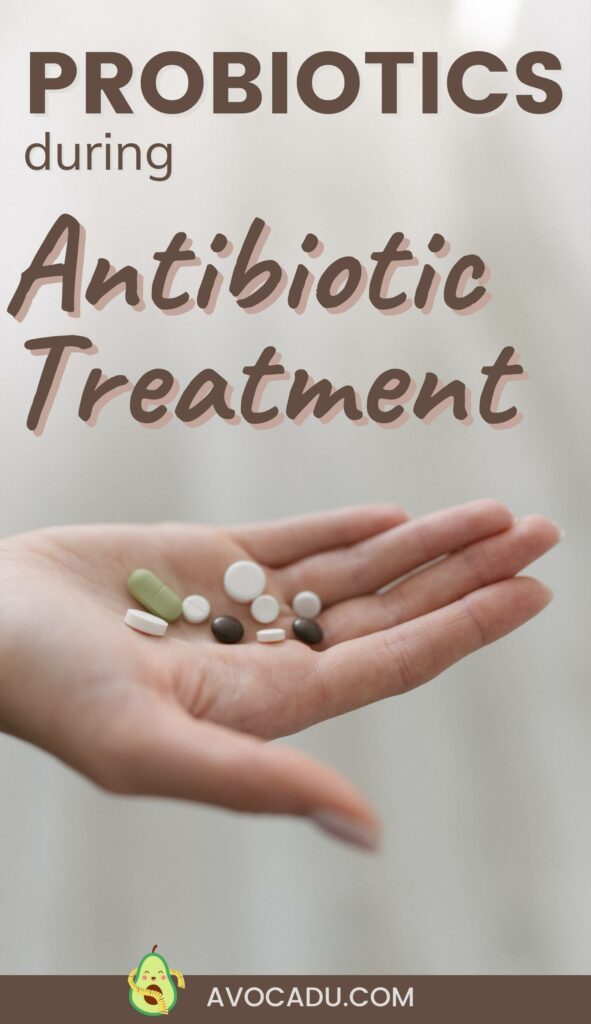The Importance of Probiotics during Antibiotic Treatment
In the world of health and wellness, few topics are as exciting and dynamic as the complex dance between probiotics and antibiotics.
Both players, with roles seemingly opposite, hold center stage in our bodies, orchestrating a performance that affects our health in a multitude of ways.
While antibiotics are often hailed as our defensive line, fighting against disease-causing bacteria, their approach can sometimes be akin to a full-scale attack, impacting not just the harmful, but also the beneficial bacteria dwelling in our bodies.
And it’s precisely where probiotics, our allies in health, step in, balancing the equation and helping our bodies maintain a healthy rhythm.
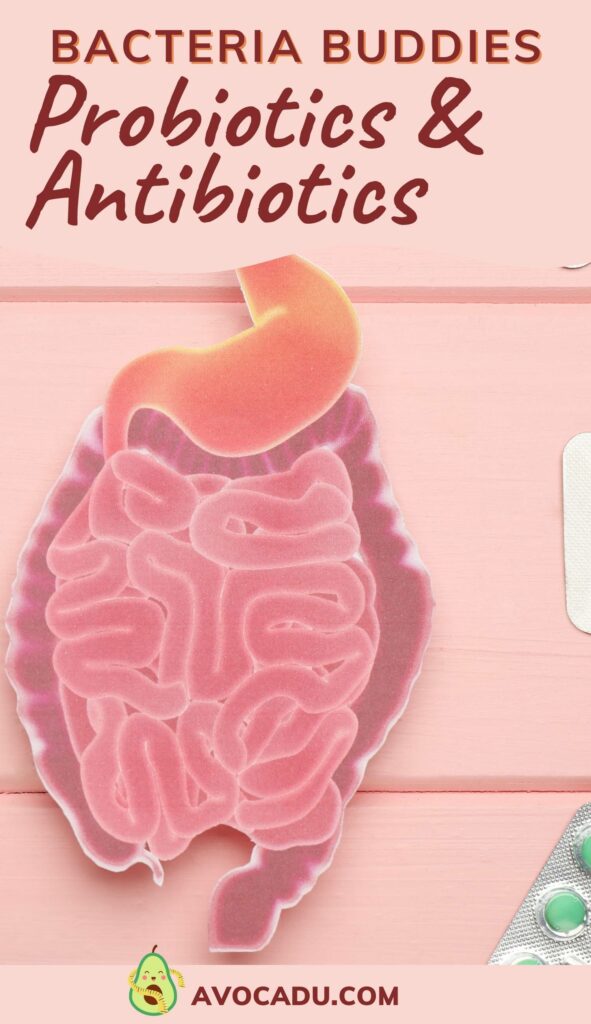
Let’s discuss the essential role of probiotics during antibiotic treatment, uncovering the science, the benefits, and offering practical tips along the way.
This post may contain affiliate links, which helps keep this content free. Please read our disclosure for more info.
Understanding Antibiotics and Their Role
In the grand scheme of medicine, antibiotics undoubtedly play the role of formidable defenders.
They’ve revolutionized healthcare, transforming our ability to combat bacterial infections that once posed severe threats to human life.
Without antibiotics, many common procedures, like surgeries and treatments for diseases like tuberculosis and sepsis, would be far riskier.
In essence, antibiotics are chemical compounds that kill bacteria or halt their growth. They can be thought of as the superheroes of medicine, swooping in to thwart the proliferation of bacterial villains and keep us healthy.
From penicillin, discovered by Alexander Fleming in 1928, to modern antibiotics like azithromycin and ciprofloxacin, these drugs have been indispensable tools in the fight against infectious diseases.
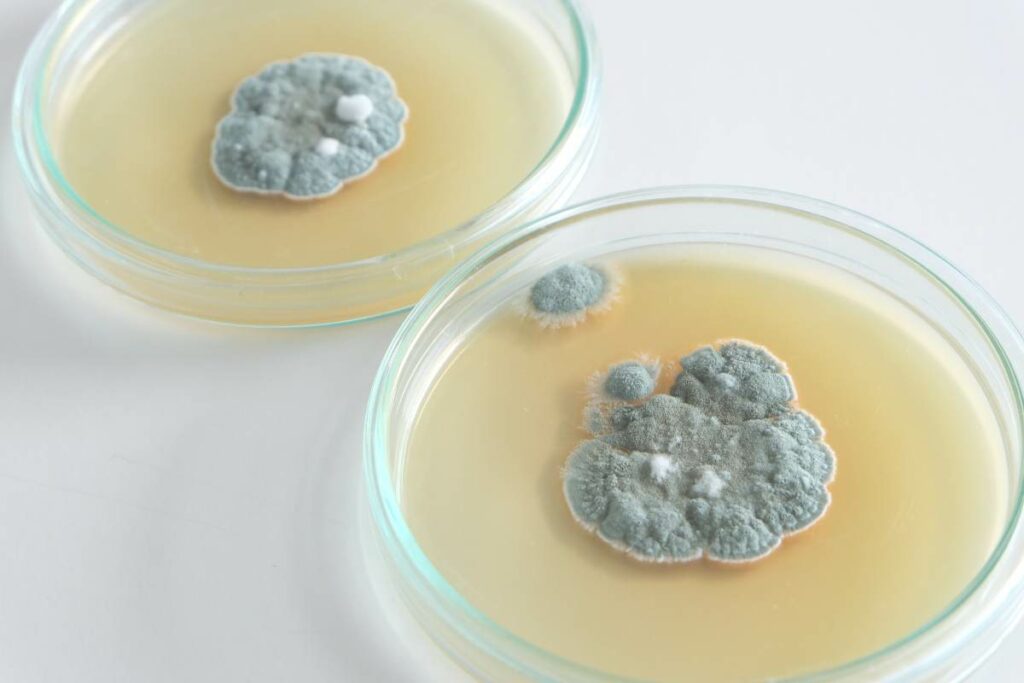
However, every superhero story has a twist, and antibiotics are no exception. While they are extraordinarily effective at fighting harmful bacteria, their strength can also lead to an unintended consequence.
They often can’t differentiate between the harmful bacteria causing your illness and the beneficial bacteria that live in your gut, which play a crucial role in digestion, nutrient absorption, and immunity, among other functions.
In their well-intentioned mission to wipe out the disease-causing bacteria, antibiotics sometimes also eradicate some of our friendly gut bacteria.
Imagine a powerful superhero who, in their enthusiasm to save the city from villains, accidentally causes damage to some of the city’s infrastructure. It’s not intentional, but the damage is done nonetheless.
This collateral damage to our gut’s microbiota can lead to an imbalance, known as dysbiosis.

Dysbiosis can result in several discomforting symptoms like diarrhea, bloating, and can even pave the way for more serious health conditions.
But here’s where the beauty of our body’s resilience shines – with the help of probiotics, we can restore this balance and ensure our gut health doesn’t suffer in the long term.
So, while antibiotics do play an essential role in our health, it’s equally crucial to understand and address their impact on our gut health.
With a balanced approach, we can harness the power of antibiotics while mitigating their potential side effects, ensuring the superheroes of our health story create more solutions than problems.
The Significance of Gut Health and Microbiota

The gut, often underestimated, is a powerhouse that influences our health in surprising ways. It’s not just a digestive workhorse responsible for breaking down our meals into usable nutrients. Far from it!
Our gut plays a pivotal role in shaping our overall health, even in areas that might seem unrelated at first glance.
Digestion? Sure. But it doesn’t stop there. Your gut also holds sway over your mood, contributing to feelings of happiness or anxiety. It aids your immune system, helping to decide how your body responds to invaders.
Related Article: Probiotics for Mental Health: The Gut-Brain Connection
It can even influence your weight and the clarity of your skin. It’s like the silent conductor of an orchestra, ensuring every section comes together to create beautiful, harmonious music – in this case, your well-being.
So, what gives the gut such tremendous power? The credit goes to its loyal and diverse inhabitants – the gut microbiota.
This bustling community of trillions of microorganisms, which includes bacteria, viruses, and fungi, calls your digestive tract their home.
Each member of this complex community has a unique role, contributing to a finely-tuned ecosystem that’s critical for maintaining your health.
When the gut microbiota is in balance, it’s a well-oiled machine, supporting digestion, immunity, and even mental health.
However, when this balance is disrupted – which can happen during antibiotic treatment – it can lead to issues like poor nutrient absorption, weakened immune response, and even mood changes.
Maintaining and nurturing the health of your gut microbiota is, therefore, vital. It’s like tending to a garden – for the flowers to bloom, you need to ensure each plant gets the right amount of sun, water, and nutrients.
Similarly, for us to thrive, our gut microbiota needs to be in harmony. With the right care, we can foster a gut environment that supports our health journey, ensuring we feel our best from the inside out.
Role of Probiotics in Restoring Gut Health
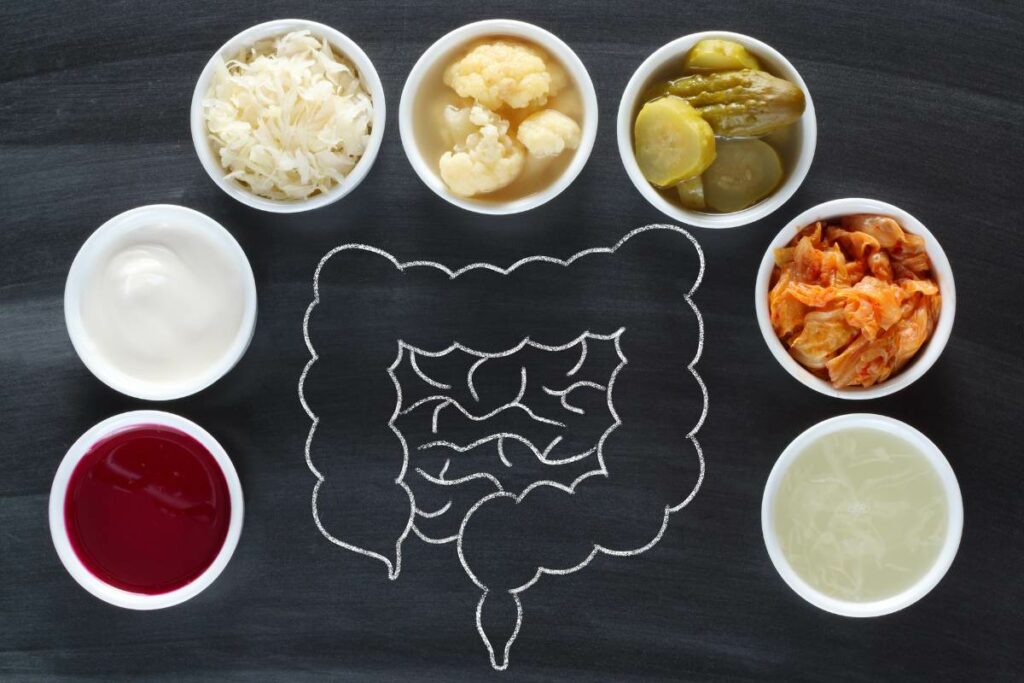
Probiotics, often referred to as ‘good bacteria’, play a crucial role in our gut. These live microorganisms, including certain types of bacteria and yeasts, offer a host of health benefits when consumed in the right amounts.
The magic of probiotics lies in their ability to enrich our gut microbiota’s diversity. They bring more beneficial microorganisms to the party in our gut, which is crucial for our overall health.
A diverse gut microbiota can enhance digestion, strengthen the immune system, and can even positively influence mental health.
Not only do probiotics add to the beneficial bacteria in our gut, but they also help create an environment where harmful bacteria find it tough to survive.
Probiotics produce substances such as lactic acid that reduce the pH in our gut. This lower pH makes life difficult for harmful bacteria, keeping their numbers in check.
One of the critical times probiotics prove particularly useful is following a course of antibiotics. While antibiotics are necessary to fight off certain infections, they don’t discriminate between good and bad bacteria.
This can disrupt the balance in our gut microbiota and lead to a decrease in the number of beneficial bacteria.
Probiotics help replenish these good bacteria, restore the balance in our gut, and mitigate antibiotic-associated side effects such as diarrhea.
They help keep our gut diverse, discourage harmful bacteria, and support recovery following antibiotic treatment. They are truly integral to the health and well-being of our gut.
Choosing the Right Probiotic During Antibiotic Treatment
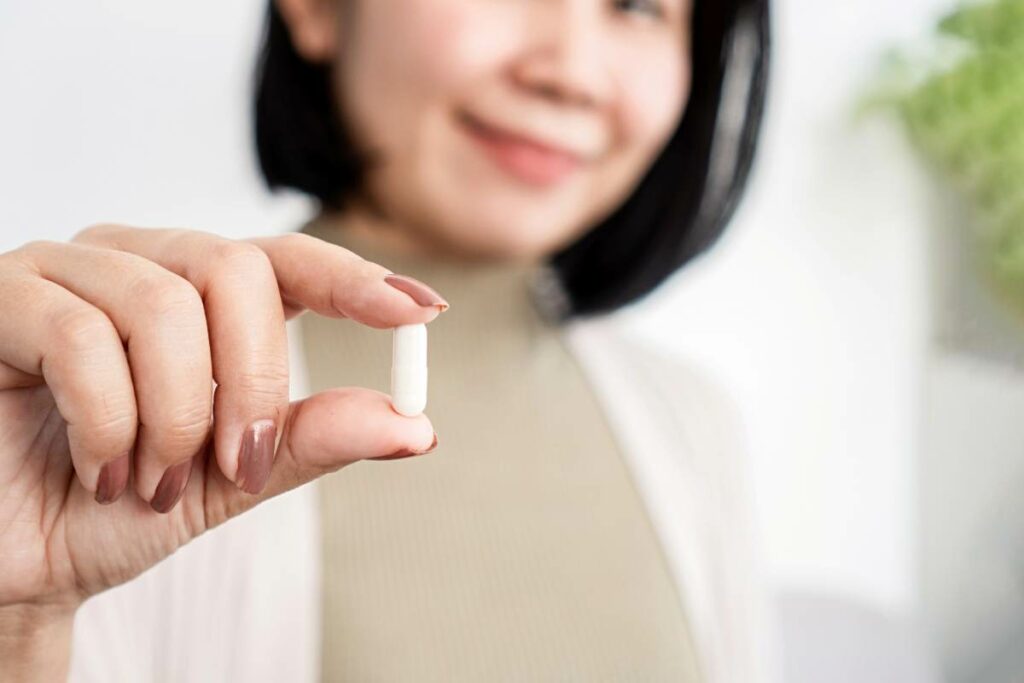
While probiotics are generally beneficial, it’s essential to remember that not all probiotics are created equal.
They come in many different strains, each with its unique benefits and roles. Choosing the right probiotic during antibiotic treatment can significantly influence how well it can support your gut health and help mitigate antibiotic-associated side effects.
Your personal health profile is a crucial factor in selecting the right probiotic. If you have specific health conditions, some probiotic strains might be more beneficial than others.
For example, research has found that certain strains of Lactobacillus and Saccharomyces boulardii can help prevent antibiotic-associated diarrhea.
Other strains might be beneficial for those with conditions like Irritable Bowel Syndrome or Inflammatory Bowel Disease.
Your dietary needs and preferences also play a role. Probiotics can be found in various sources, from supplements to fermented foods like yogurt, kefir, sauerkraut, and kimchi.
If you prefer to get your probiotics from your diet, you might need to consider which foods are best suited to your dietary needs and restrictions.
The type of antibiotic you’re taking can also influence your choice of probiotic. Some antibiotics might have interactions with certain probiotics, so it’s crucial to seek advice from a healthcare professional to find the best match.
Timing your probiotic intake is another key factor. As a rule of thumb, probiotics should be taken a few hours apart from your antibiotics.
This is to ensure that the antibiotics don’t end up killing the probiotic bacteria before they’ve had a chance to confer their benefits to your gut.
The bottom line is that choosing the right probiotic during antibiotic treatment isn’t a one-size-fits-all scenario. It’s a decision that should be personalized to your specific health needs and situation.
Bringing It All Together: Gut Health, Antibiotics, and Probiotics

As we wrap up our health journey today, one thing stands out: balancing antibiotics with probiotics is akin to creating an extraordinary gut health symphony.
Each element has a distinct yet harmonious role, contributing to the grand symphony of our overall well-being.
Just as a symphony requires careful selection and coordination of instruments, so does the task of choosing the right probiotic during antibiotic treatment.
And if you’re looking for a potential probiotic ally, consider Avocadu’s Premium Probiotic, Gut-13.
This high-quality probiotic is designed to support a healthy gut and contains a blend of beneficial bacteria strains that can help repopulate your gut with friendly microorganisms and promote balance.
PROBIOTIC
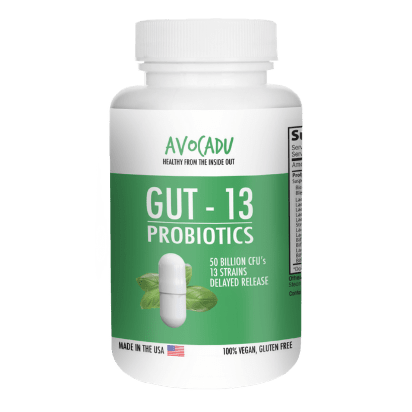
Avocadu’s Gut-13 Probiotics
In a recent study, women taking probiotics lost 50% more weight than those who did not. Your gut health and how well you absorb nutrients MATTERS. Don’t miss out on getting in a daily probiotic. Click here.
Keep in mind that your body is unique. Care for it with the consideration it deserves. Listen to its needs and respond appropriately.
By maintaining a balance between antibiotics and probiotics, you’re nurturing a vital aspect of your health—your gut.
